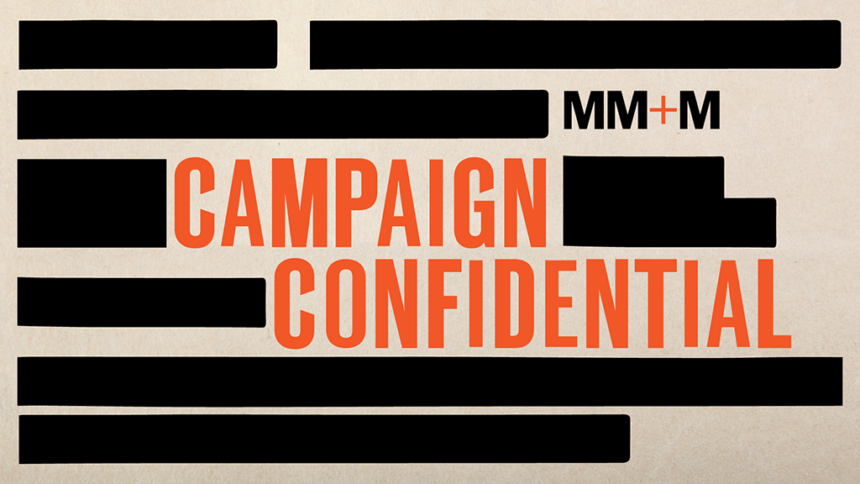If you’re an avid follower of medical marketing news, the subject of this week’s Campaign Confidential column should seem familiar.
The Inequality You Can’t Ignore campaign, created by The Chrysalis Initiative and Eversana Intouch, a 2023 MM+M Agency 100 honoree, took home a Gold Pharma Lion at the 2023 Cannes Lions International Festival of Creativity.
The highly coveted industry honor comes after an ambitious conception and execution of a campaign targeting racial inequities in the healthcare system.
Sometimes the first challenge a campaign faces is finding the opportunity to reach its targets, especially when obstacles are put in the way. For The Chrysalis Initiative and Eversana Intouch, this would involve an inspired use of two different marketing tools: out of home (OOH) advertising and augmented reality (AR).
The Chrysalis Initiative wanted to bring its focus on unconscious bias and healthcare disparities to hospitals in the New York metropolitan area. However, there was a wrinkle right off the bat: none of the institutions solicited for the effort chose to have the campaign displayed within their walls.
In response to that, Eversana Intouch decided to take its work outside. Nearby bus shelters would provide a place for nurses and doctors, as well as patients, to engage with the campaign.
The Inequality You Can’t Ignore campaign uses portraits of breast cancer survivors paired with a QR code that leads to an AR experience.
Those who engage with the AR experience find statistics highlighting the jarring disparities in treatment and results among different groups of women. For example, Black women are 42% more likely to die from breast cancer than white women.
There is also a link to the campaign’s microsite where a short film portrays the challenges that Black breast cancer patients face in receiving treatment by focusing on the stories of three individual cancer survivors.
[embed: https://www.youtube.com/watch?v=c3CWaB4Hyvs&pp=ygUYaW5lcXVhbGl0eSB5b3UgY2FuJ3Qgc2Vl]“Getting the technology to work was challenging,” says Ivan Blotta, group creative director and head of art at Eversana Intouch. “We worked with an AR company called Wildlife and they were helpful with getting it to work and troubleshooting. We wanted this information to explode out of the phones because it’s such a big disparity and technology helped in this way.”
Inequality You Can’t Ignore is the latest in a series of powerful initiatives from The Chrysalis Initiative and Eversana Intouch that have made the abstract idea of healthcare disparity concrete, attaching faces and figures to concepts like unconscious bias. The partnership’s Erase the Line effort was recognized as the Best Philanthropic or Purpose-driven campaign at the 2022 MM+M Awards.
The Chrysalis Initiative’s founder Jamil Rivers has a personal connection to Inequality You Can’t Ignore, having learned quickly how to navigate the world of breast cancer and become an advocate for her own care.
“I was suddenly thrown into this cancer world when I was diagnosed with Stage IV breast cancer,” she explains. “I was supposed to be the healthy one because my husband is already a cancer survivor. I just got catapulted into advocacy and trying to give myself a winning chance by learning as much as possible and making sure that I was getting the best care.”
Initially, The Chrysalis Initiative’s focus was on speaking to patients and allowing patients to speak to each other through its BC Navi app. By providing patients with a way to share their experiences at cancer centers, the app helped to shine a line on satisfaction and encourage reform to further benefit patients.
The latest campaign, however, is primarily concerned with speaking to a different audience: hospitals, provider organizations and healthcare professionals. The AR experience and the microsite encourage medical professionals to sign up for unconscious bias training, which can take a number of different forms, from online education seminars to in-person workshops.
The goal is to make progress on some of the most disturbing findings that the campaign illuminates, like the fact that Black women represented only 3% of participants in breast cancer clinical trials. That figure is for the period from 2008 to 2018 and Rivers notes that there has already been some progress at designing clinical trials so that more Black women are recruited and able to participate.
“Individual practitioners and providers want to do better. They want to have better communication and deal with these challenges as far as bias and they are eager for those resources,” Rivers says.
The organization’s guided workshops also help to cut through some of the common excuses around unconscious bias according to Rivers.
“They dispel some of the rationalizations and narratives that it’s just circumstantial or not that bad,” she adds.
Looking ahead, Rivers shares that The Chrysalis Initiative will be launching a longer documentary on the unique challenges that Black women with breast cancer face, with a targeted release date of October to coincide with Breast Cancer Awareness Month.







